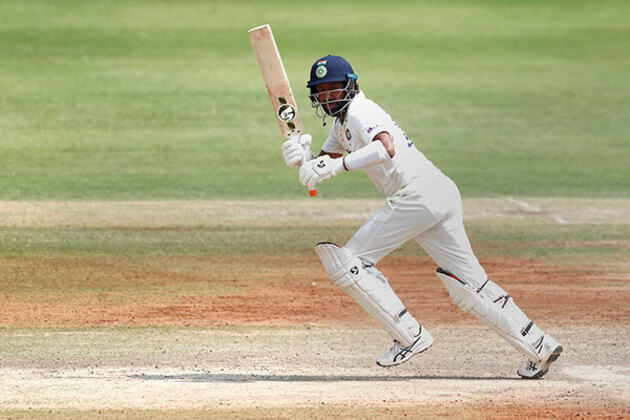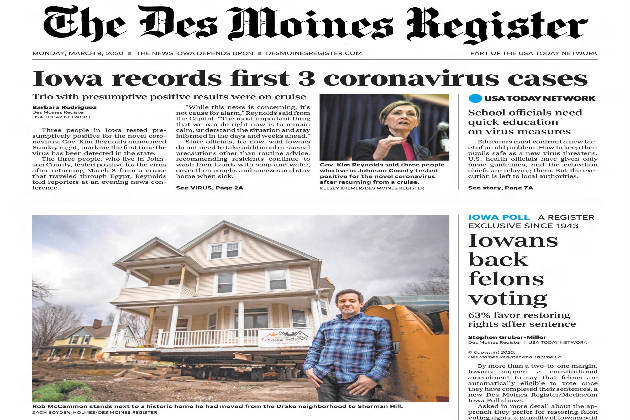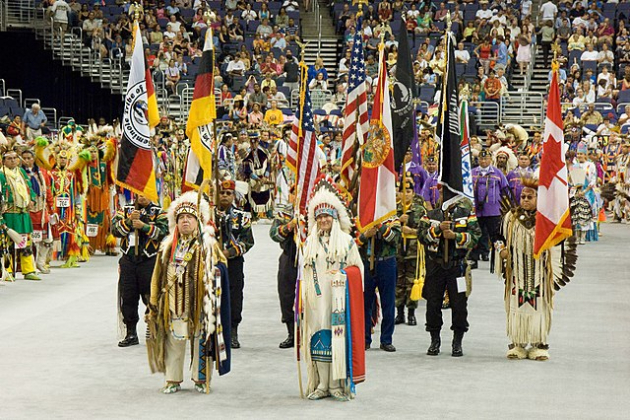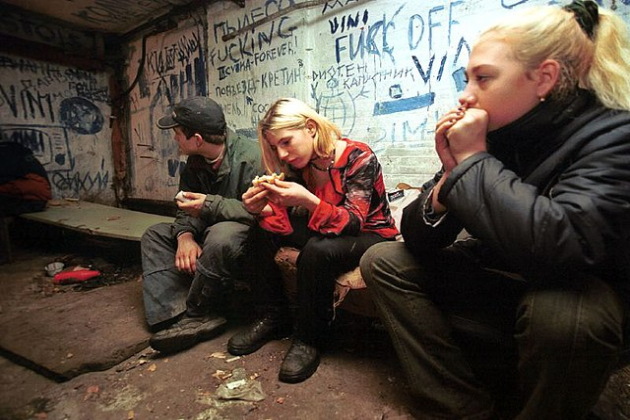Fake news and the election campaign - how worried should voters be?
The Conversation
02 May 2025, 04:45 GMT+10

The spread of electoral misinformation and disinformation is undermining democracies around the world.
The World Economic Forum has identified the proliferation of false content as the leading short-term global risk in 2025 for a second consecutive year. Misleading information poses a bigger threat to global GDP, population and natural resources than even climate change or armed conflict.
Here in Australia, is the federal election facing the same threat from misinformation and disinformation? And how concerned should we be?
Our latest study on public trust shows Australians are encountering electoral misinformation and are worried about it.
We surveyed more than 7,000 people during March and April when the election campaign was heating up. At least two-thirds of respondents said they had already encountered false or misleading election information.
Whether deliberate (disinformation) or unintentional (misinformation), we found Australians were exposed to different types of election falsehoods involving:
issues and candidates
election procedures
election integrity, such as alleged rigged outcomes and unsupported attacks on the Australian Electoral Commission (AEC).
Consistent with other Australian and international misinformation studies, people are clearly anxious about being misled. An overwhelming majority of respondents (94%) viewed political misinformation as a problem; more than half regarded it as a "big" or "very big problem".
Our team, based across four universities, examined the types of electoral misinformation and disinformation Australians reported seeing. Almost two-thirds, 63.1%, encountered falsehoods about issues or candidates, such as misleading claims about parties' policy proposals.
Thirty-nine percent reported misinformation/disinformation about voting procedures, such as when and how to vote. A similar share, 38.4%, identified fake content about election integrity, including false claims that elections are rigged or that the Australian Electoral Commission is colluding with political parties.
A significant number of people, 20-30%, were also unsure whether they had encountered misleading content. This uncertainty is concerning in itself. Being unable to judge the accuracy of information can undermine the formation of informed opinion.
It also aligns with other research showing many Australians feel they have limited ability to verify information online.
The most prominent examples of misinformation/disinformation related to major election issues, such as:
The most common names that people associated with misleading information were:
Deeper analysis is needed to understand the context of these self-reported claims of misinformation and disinformation during the campaign. However, we do know that those exposed to false content identified it in both mainstream daily news and social media sources.
Research across the fields of psychology, communication and political science shows exposure is not the same as impact. Yet, misinformation and disinformation can influence attitudes and behaviour among vulnerable groups.
Our own work on the 2023 Voice referendum showed disinformation targeting the Australian Electoral Commission had a small but noticeable effect on public trust, even though trust remained high overall.
In another global study, we found online disinformation can distort perceptions of election fairness.
These findings underscore the need to counter falsehoods. Electoral authorities and political leaders must work to protect democratic trust and prevent the kind of election denialism that led to the January 6 Capitol insurrection in the United States.
Of course, people might not always accurately judge how much misinformation or disinformation they've seen. This is a common challenge in studies like ours. But even if their perceptions don't match reality, simply feeling exposed to false or misleading information is linked to greater political cynicism.
Encouragingly, most Australians recognise the problem and want action. In our survey, 89% said it's important to know how to spot it, while 83% agreed the practice makes it harder for others to separate fact from fiction. But only 69% felt false information affected them personally.
Many feel especially vulnerable about false claims about candidates and election issues (see Figure 1). Such falsehoods are currently unregulated at the federal level in Australia. But the AEC ranks among the world's most innovative electoral authorities in countering disinformation, even without "truth in advertising" laws.
In another, yet unpublished study, we found the AEC is a global role model with its multi-pronged strategy to counter misleading information. Its tools include a public disinformation register, media partnerships, and the "Stop and Consider" campaign, which provides clear, accurate information to help voters think critically before sharing content.
Our own study revealed other encouraging signs. Individuals who are more satisfied with Australian democracy perceive disinformation as less of an existential threat than those who are already dissatisfied. This suggests a positive attitude towards democracy helps protect democratic institutions.
This provides a strong rationale for non-profits such as the Susan McKinnon Foundation to promote the value of democratic governance. The Scanlon Foundation, is also making an important contribution with its recent Voices of Australia podcast series, "Truth, Trust and Politics".
Whoever wins the election, our study shows one thing is clear - fighting electoral misinformation and disinformation is in everyone's democratic interest.
 Share
Share
 Tweet
Tweet
 Share
Share
 Flip
Flip
 Email
Email
Watch latest videos
Subscribe and Follow
Get a daily dose of Brisbane Star news through our daily email, its complimentary and keeps you fully up to date with world and business news as well.
News RELEASES
Publish news of your business, community or sports group, personnel appointments, major event and more by submitting a news release to Brisbane Star.
More InformationAustralia
SectionRegions want gritty news that matters not 'anaemic' local coverage
Regional audiences still want trusted local coverage that seeks accountability on issues that matter, but there are news outlets failing...
Fake news and the election campaign - how worried should voters be?
The spread of electoral misinformation and disinformation is undermining democracies around the world. The World Economic Forum has...
Scientists surprised to discover mayflies and shrimp making their bodies out of ancient gas
What's the currency for all life on Earth? Carbon. Every living thing needs a source of carbon to grow and reproduce. In the form of...
"If the team needs me, I am prepared": Cheteshwar Pujara on India's forthcoming England tour
New Delhi [India] May 1 (ANI): Cheteshwar Pujara hasn't played for India since the World Test Championship (WTC) final against Australia...
"Every cricket fan must go to...": Finch reflects on MS Dhoni's charm amidst CSK's tough season
New Delhi [India], May 1 (ANI): Chennai Super Kings' (CSK) hopes of making the Indian Premier League (IPL) 2025 playoffs took another...
What are the symptoms of measles? How long does the vaccine last? Experts answer 6 key questions
So far in 2025 (as of May 1), 70 cases of measles have been notified in Australia, with all states and territories except Tasmania...
International
SectionTrump demands free passage for US ships through Panama, Suez canals
WASHINGTON, D.C.: U.S. President Donald Trump said over the weekend that American military and business ships should be able to travel...
Singapore orders Meta to block foreign election posts
SINGAPORE: Singapore has ordered Facebook's parent company, Meta, to block Singaporeans from seeing posts made by three foreigners...
Iowa governor sues Des Moines Register over email dispute
DES MOINES, Iowa: Iowa's governor has launched a lawsuit against the Des Moines Register, seeking to block the newspaper from obtaining...
Ex-Detroit nonprofit executive gets 19 years for $40 million theft
DETROIT, Michigan: A former top official at a major Detroit nonprofit was sentenced this week to 19 years in prison for stealing over...
New Mexico hosts global celebration of native and indigenous cultures
ALBUQUERQUE, New Mexico: Thousands of people are gathering in New Mexico for a big event that celebrates Native American and Indigenous...
San Francisco moves toward “recovery first” drug policy
SAN FRANCISCO, California: San Francisco is taking steps to change how it handles drug use. After Some people say focusing on quitting...











